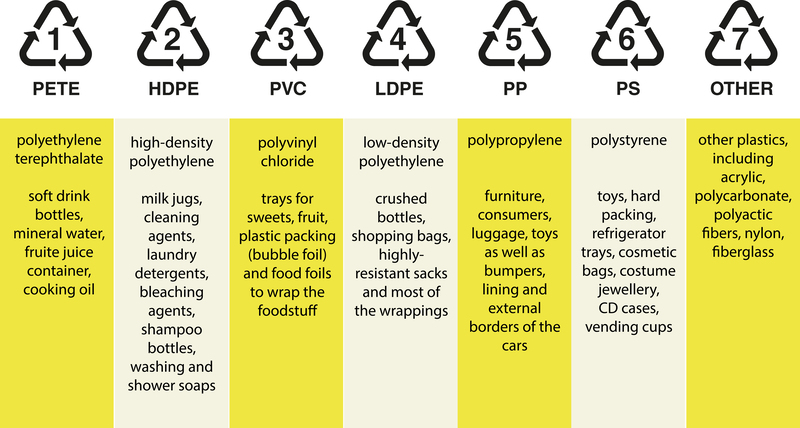Declutter Your Cabinets: Sustainable Ways to Get Rid of Old Cookware
Are your kitchen cabinets overflowing with old pots, pans, and utensils you no longer use? If you're ready to reclaim your space and get organized, decluttering your cabinets in an environmentally responsible way is essential. Many homeowners face the dilemma of what to do with outdated, damaged, or unused cookware. Tossing everything in the trash is quick and easy, but it also contributes to landfill waste and environmental degradation. Instead, there are sustainable ways to dispose of old cookware that are better for both your kitchen and the planet.
Why You Should Declutter Your Kitchen Cabinets
A cluttered kitchen can lead to stress, inefficiency, and difficulty finding what you need. By clearing out old cookware, you'll create a tidier and more enjoyable space to prepare your meals. Additionally, getting rid of unused items can make it easier to maintain your cabinets and decrease the risk of pests or bacteria buildup. Decluttering your cabinets also gives you an opportunity to assess your needs, avoid unnecessary purchases, and live more sustainably.
Environmental Impact of Disposing Cookware Improperly
Kitchenware, especially if made from metals or plastics, can take centuries to break down in landfills. Non-stick coatings, plastics, and composite materials may leach chemicals into the soil and water when not disposed of correctly. Choosing sustainable ways to get rid of old cookware is a responsible choice that helps reduce your carbon footprint and contributes to cleaner communities.

Step-by-Step Guide to Declutter Your Cabinets Responsibly
- Gather All Your Cookware
Start by removing every pot, pan, baking sheet, and utensil from your cabinets. Place them on a large table or clean surface. Seeing everything at once gives you a clear idea of what you own. - Assess the Condition
Sort items into categories: frequently used, seldom used, damaged, or completely unused. Examine cookware for cracked handles, warped bottoms, flaking non-stick surfaces, or rust. These may no longer be safe or effective to use. - Make Decisions
Decide which items you want to keep, donate, recycle, upcycle, or dispose of. Set aside anything broken or unsafe for use, and identify gently used but unwanted pieces for donation or reuse.
Sustainable Ways to Get Rid of Old Cookware
1. Donate Usable Cookware to Charity
If your old cookware is still in good condition, donation is a fantastic sustainable option. Many organizations gladly accept gently used pots, pans, and utensils for redistribution to those in need. Consider these places:
- Thrift Stores and Second-Hand Shops - Places like Goodwill, Salvation Army, and local consignment shops accept most types of kitchenware.
- Homeless Shelters and Community Centers - Nonprofits frequently need kitchen supplies to serve meals or assist new residents.
- Charity Drives or Religious Organizations - Churches, mosques, and synagogues often hold donation drives for families in need.
Before donating, ensure the cookware is clean and in usable condition. Avoid donating anything with sharp edges, flaking coating, or missing parts.
2. Recycle Old Pots, Pans, and Metal Utensils
Recycling is one of the most eco-conscious ways to discard your old cookware. Most metal cookware, like stainless steel, aluminum, and copper, can be recycled as scrap metal. Here's how to recycle properly:
- Check Local Recycling Guidelines: Municipal recycling programs often accept steel and aluminum products, but check if they allow cookware items.
- Remove Non-Metal Parts: Take off plastic, wood, or rubber handles, and separate lids made from different materials.
- Drop Off at Scrap Yards: If curbside pickup isn't available, find a nearby scrap metal yard. Many will accept old pots, pans, and sometimes even broken appliances.
- Contact the Manufacturer: Some brands offer take-back programs or recycling options for their own products.
*Tip:* Not all non-stick pans are easily recyclable due to their chemical coating. Check with local facilities about how to handle these items.
3. Upcycle Old Cookware into Something New
If you're feeling creative, give your old cookware a second life through upcycling projects! Instead of adding to landfill waste, turn your retired pots and pans into useful or decorative items. Here are a few ideas:
- Planters: Drill drainage holes and use old pots/pans for outdoor or indoor plants.
- Wall Art: Paint and mount unique utensils or colorful pans as kitchen decor.
- Storage Organizers: Hang colanders or small saucepans on the wall to store kitchen tools or fruit.
- Clocks: Attach clock kits to large pan faces for a quirky kitchen timepiece.
- Candle Holders: Repurpose muffin tins or small bowls for DIY candles.
Let your imagination run wild--the possibilities to repurpose old cookware are endless!
4. Repurpose in the Kitchen or Garden
Some cookware, even when too damaged for cooking, can still serve a purpose. Here are a few repurposing ideas:
- Seed Starters: Use egg poacher molds, muffin tins, or small baking trays to start seeds before transplanting them outdoors.
- Compost Holders: Old bowls and pots make great containers for temporary compost scraps.
- Tool Storage: Turn deep pots or colanders into holders for garden or craft tools.
5. Sell or Swap Old Kitchenware
- Host a Garage Sale: Sell gently used pots, pans, or kitchen appliances at local sales or online marketplaces like Facebook Marketplace, Craigslist, or eBay.
- Join a Swapping Group: Many neighborhoods and online forums, such as Buy Nothing groups, facilitate swaps of household items, reducing waste and helping your community.
Selling or swapping lets someone else benefit from items you no longer need--and you might find something you've been looking for, too!
What to Do With Cookware That's Non-Recyclable?
Not all cookware is recyclable, especially items with non-stick coatings containing PTFE or Teflon. When dealing with these items:
- Contact Hazardous Waste Facilities: Some municipal programs accept chemically-coated cookware for safe disposal.
- Avoid Burning or Shredding: This releases toxic fumes and is harmful to people and the environment.
- Inquire About Mail-Back Programs: Occasionally, manufacturers offer mail-back recycling for difficult-to-dispose-of products.
Tips for Maintaining Sustainable Kitchen Habits
- Choose Durable Cookware: Invest in high-quality, long-lasting pots, pans, and tools to reduce waste from frequent replacements.
- Repair When Possible: Handles, lids, and some surface scratches can often be repaired rather than throwing an item away.
- Buy Secondhand: Look for gently used cookware at thrift stores or online to extend existing products' life cycle.
- Use Non-Toxic Cleaners: This keeps your cookware in better shape and ensures household safety.

Frequently Asked Questions About Decluttering and Disposing of Old Cookware
Can you recycle non-stick pans?
Most municipal recycling programs do not accept non-stick pans because of their chemical coatings. However, some scrap metal yards may take them if you remove all non-metal parts and the coating if possible. Otherwise, check with hazardous waste facilities or product manufacturers for specialized recycling options.
Should I give away scratched or damaged cookware?
Only donate cookware that is safe to use--avoid donating items with deep scratches (especially non-stick), rust, or missing parts. Always err on the side of safety for others.
Can I put old pots and pans in the curbside recycling?
Not always. Many curbside programs do not accept bulky metal cookware. Check local guidelines or bring items to a designated scrap metal collection facility instead.
How can I prevent future cookware clutter?
The best way to keep clutter at bay is to adopt a "one-in, one-out" rule. Only bring new items into your kitchen when you let go of something old or not in use. Regularly review your cabinets and set aside items you haven't used in the past year for donation, recycling, or upcycling.
Conclusion: Declutter Responsibly for a Greener Kitchen
Decluttering your cabinets and getting rid of old cookware doesn't have to mean sending everything to the landfill. By exploring sustainable ways to dispose of kitchenware--from donating and recycling to upcycling and repurposing--you'll contribute to a more organized home and a healthier planet. Not only will your kitchen become more functional, but you'll also know that your cleanup efforts are making a positive environmental impact.
Next time you clean out your kitchen, remember these sustainable strategies and inspire friends or family to do the same. Every small action counts towards a greener future!
Looking for more eco-friendly kitchen tips? Read our guide on sustainable kitchen essentials and how to reduce kitchen waste.
